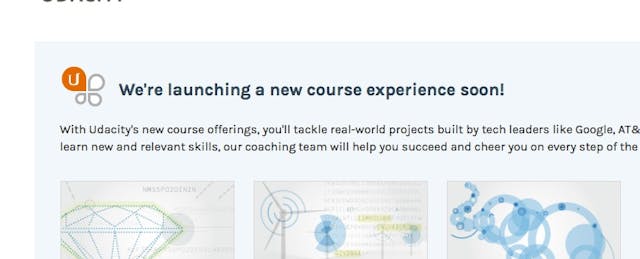About two years ago, Sebastian Thrun was a professor at Stanford University teaching computer science to more than 100,000 people around the globe. Enthusiasm for that class helped ignite MOOC mania--and catapulted Thrun into the private sector as founder of a company he called Udacity. The mission of Udacity, Thrun said, was to provide great education to anyone in the world at little or no cost.
What a difference a business model can make.
This week, Thrun unveiled a different approach: rather than provide free education for all, Udacity is teaming up with companies to deliver courses around the skills that employers say they need. Specifically, Thrun announced this week its "Data Science and Big Data Track," developed in cooperation with Cloudera, which build enterprise-grade data management software.
"In this course, Cloudera’s experts and our Udacity instructors will start by answering the question “What is Big Data?” They will teach you fundamental principles of Hadoop, MapReduce, and how to make sense of big data," according to the Udacity blog.
Most significantly, the entire Udacity experience will not be free. Udacity is not removing any of its existing free curriculum, company executives point out. But it will change extra for additional support--online coaches to help students and certifications once a course is successfully completed.
The Big Data course, for instance, which will launch in January, will cost students $105 per month. Students can take the courses at their own pace. Udacity suggests how long it will likely take (assuming you're putting about 5 hours/week into the course). That big data course? Probably about two months of work--provided you're really working.
And beginning in January, Udacity will also offer online coaches, or tutors, seven days a week. The coaches are subject matter experts, trained to help support students. "I would love to set students up for success, not for failure," Thrun said in public many times.
(Udacity points out that there will be free paths for all courses including the Big Data program, but additional benefits such as coaching and a Udacity certificate will be available to those who pay.)
The switch in business model came about as Thrun wrestled with how to combat the high turnover of students in the Udacity MOOC. According to a detailed profile in Fast Company, the high dropout rate was a trigger for Thrun:
"We were on the front pages of newspapers and magazines, and at the same time, I was realizing, we don't educate people as others wished, or as I wished. We have a lousy product," Thrun tells me. "It was a painful moment." (From Fast Company).
Helping people learn what they need to learn to get a good job is still a powerful mission. And Udacity sums it up this way:
"Udacity’s mission is to educate people so they can live a better life. In an era of declining employment opportunities in many traditional areas, we are empowering our students to acquire the necessary skills to excel in the high-growth tech industry."
Sounds like Udacity isn't just fishing for students--but hoping to teach students how to fish.


